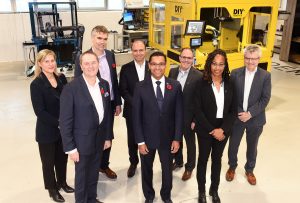The notion of smart city is spreading to the four corners of the planet, emphasizing not only the technological but also the sustainable aspect of agglomerations. Some studies indicate that nearly 70% of the world’s population is expected to live in urban areas by 2050, increasing pressure on local resources and amplifying major issues such as global warming.
For years, these changes have become a crucial issue for decision-making in urban planning in both the public and private spheres. Indeed, companies and governments are deploying colossal efforts to provide more efficient and less energy-intensive services, adapted to the real needs of citizens without harming the environmental cause. In this sense, artificial intelligence and the exploitation of data open up opportunities to build the sustainable cities of tomorrow.
Data science and artificial intelligence now make it possible to develop tailor-made responses to the environmental challenges to be met. This is the case, for example, of the company Axceta, a partner of the Systra group, which entrusted the Computer Research Institute of Montreal (CRIM) with the development of a tool for predicting the consumption of electric batteries in buses. Based on operational data collected in real conditions, his work has contributed to the optimization of the Ville de Laval transport network.
CRIM’s experts had to start with a preliminary assessment of the relevant data to be collected. In order to establish value-added correlations of vehicle operation, the experts also identified other external data to monitor, such as weather conditions, public transport ridership and traffic conditions. “Axceta’s network of expertise in software development, Systra’s transport electrification and CRIM’s data science has enabled the partners to create a decision-making tool enabling engineers at Systra in particular to propose a solution ideal for their transportation electrification projects. Axceta is proud to collaborate in this initiative facilitating the acceleration of the energy transition” says Francis Latulippe, Chief Technology Officer, Axceta.
In collaboration with the Réseau de Transport de Laval (RTL), the company has equipped several buses with a telematics solution to collect data for a period of about three months before moving on to cleaning, annotation and of storage. Subsequently, CRIM experts worked on algorithms that proved that this technological solution could have a real impact on the quality of life of citizens and on their energy footprint.
The benefits of AI data mining for smart and sustainable cities don’t stop with transportation. From the construction of smarter, more ecological and connected buildings to the prediction of risks related to natural disasters (floods, desertification, fires), public organizations can decide and act more quickly, with more precision and measurable impacts, facing the challenges of climate change.
In the geospatial field, CRIM is also at the forefront by actively participating in the Dataclimate.ca initiative in collaboration with Environment and Climate Change Canada and Ouranos. This regional climatology consortium caught the attention of K2 Geospatial, a Quebec company that developed the JMap cartographic integration platform, which, among other things, allows the Public Security Services of several Quebec cities to plan interventions and flood communications. “At K2 Geospatial, we are very sensitive to everything that affects climate change for our customers. The depth of CRIM’s data ensures quality and accuracy in the communications and interventions to be implemented,” says Jacques Charron, president and founder of the company.
Today, it is essential to have integrated management and the right resources to derive maximum benefit from the massive volume of digital data collected by the various public services and by the private companies involved. “For more than 35 years, CRIM has provided organizations with the knowledge and know-how of its experts in data science, artificial intelligence and software architecture to advance innovation in Quebec. To create smart, sustainable and responsible cities in a context of labor shortage which mainly affects the technology industry, collective intelligence and collaboration are becoming the standards of the business model which is imposed on the various actors. In this scenario, CRIM is a partner of choice both for carrying out experimental development or applied research projects, as well as for contributing to the development of professional skills through the mentoring component of its new Numeria program,” says Mathieu Barreau, Director, CRIM’s business, communications and partnerships.
*Article published in Le Devoir on September 10, 2022. Special report on research.





























